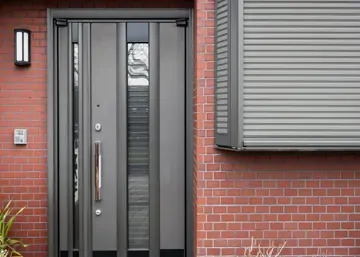Aluminium Doors in Chandigarh
Aluminium Doors in Chandigarh Discover durable, stylish Aluminium Doors in Chandigarh for modern spaces.

Recycling Aluminum for a Zero-Waste Future
Table of Contents
- Introduction
- Why Recycling Aluminum is Essential
- The Aluminum Recycling Process
- Benefits of Recycling Aluminum
- Environmental Benefits
- Economic Benefits
- Aluminum Recycling in Different Industries
- Challenges in Achieving a Zero-Waste Future
- Conclusion
- FAQs
Introduction
Aluminum is one of the most versatile and recyclable materials in the world. Its ability to be recycled indefinitely without losing quality makes it a key player in sustainable practices. Recycling aluminum plays a significant role in reducing waste, conserving energy, and supporting environmental health. In places like Chandigarh, businesses increasingly incorporate sustainable aluminum practices in various applications, including Aluminium Door in Chandigarh, to align with the global push for zero-waste solutions.
Why Recycling Aluminum is Essential
Recycling aluminum addresses two major environmental concerns: waste management and resource conservation. Primary aluminum production is energy-intensive and contributes to significant greenhouse gas emissions. Recycling aluminum uses only 5% of the energy required for primary production, making it an eco-friendly alternative. Moreover, recycling helps reduce landfill waste and decreases the need for mining bauxite, the raw material used to produce aluminum.
The Aluminum Recycling Process
1. Collection
Aluminum scrap is collected from various sources, including industrial waste, used beverage cans, and old construction materials.
2. Sorting and Cleaning
The collected aluminum is sorted and cleaned to remove impurities, ensuring a high-quality end product.
3. Shredding and Melting
The aluminum is shredded into small pieces to increase efficiency during the melting process. It is then melted in a furnace at high temperatures.
4. Refining and Casting
After melting, impurities are removed, and the molten aluminum is cast into ingots, sheets, or other forms for reuse in manufacturing.
Benefits of Recycling Aluminum
Environmental Benefits
- Reduces Carbon Emissions: Recycling aluminum emits only 5% of the CO₂ compared to primary production.
- Conserves Natural Resources: By recycling, we reduce the demand for raw bauxite mining.
- Minimizes Landfill Waste: Recycling keeps aluminum products out of landfills, contributing to cleaner environments.
Economic Benefits
- Energy Savings: Recycling saves up to 95% of the energy used in primary aluminum production.
- Cost-Effective Manufacturing: Recycled aluminum is cheaper to produce and helps lower manufacturing costs.
- Job Creation: The recycling industry creates employment opportunities, boosting local economies.
Aluminum Recycling in Different Industries
1. Construction and Architecture
Recycled aluminum is used in making windows, doors, and facades. In Chandigarh, industries increasingly use recycled aluminum to produce sustainable Aluminium Door in Chandigarh, promoting eco-friendly construction practices.
2. Packaging
Recycled aluminum is a key material in the production of beverage cans, foil, and other packaging products, which can be recycled repeatedly.
3. Automotive and Aerospace
Lightweight and strong, recycled aluminum is used in manufacturing vehicle parts, reducing fuel consumption and emissions.
4. Consumer Goods
Electronics, appliances, and furniture industries also rely on recycled aluminum for producing durable and sustainable products.
Challenges in Achieving a Zero-Waste Future
1. Collection and Sorting Inefficiencies
Improper disposal of aluminum waste and a lack of efficient collection systems hinder recycling efforts.
2. Energy Requirements for Recycling
While recycling requires significantly less energy than primary production, it still consumes energy that must be sourced sustainably.
3. Public Awareness
Educating the public on the importance of aluminum recycling remains a challenge in many regions.
Conclusion
Recycling aluminum is a crucial step toward achieving a zero-waste future. It offers significant environmental and economic benefits while supporting sustainable practices in industries like construction, automotive, and packaging. Businesses in Chandigarh increasingly rely on recycled aluminum for producing eco-friendly solutions, including Best Aluminium Door in Chandigarh, showcasing their commitment to sustainability. By addressing challenges such as public awareness and collection inefficiencies, the aluminum industry can lead the charge toward a greener, waste-free future.
FAQs
1. Why is aluminum considered eco-friendly?
Aluminum is recyclable and can be reused indefinitely without losing its quality, making it highly sustainable.
2. How much energy does recycling aluminum save?
Recycling aluminum saves up to 95% of the energy used in primary aluminum production.
3. What are the main uses of recycled aluminum?
Recycled aluminum is used in construction, packaging, automotive manufacturing, and consumer goods.
4. How does aluminum recycling help reduce waste?
Recycling keeps aluminum products out of landfills, reducing waste and supporting a zero-waste future.
5. Where can I find sustainable aluminum doors in Chandigarh?
The Best Aluminium Door in Chandigarh incorporates recycled materials to provide eco-friendly and durable solutions.
What's Your Reaction?
















